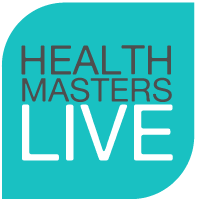Dr. Dugald Seely is a leading naturopathic clinician-scientist who has dedicated over two decades to advancing the field of integrative oncology through evidence-based research and clinical practice. Based in Ottawa, Canada, Dr. Seely has been caring for patients and conducting research in the field of integrative and naturopathic oncology for the past 20 years.
Dr. Seely graduated from the Canadian College of Naturopathic Medicine in 2003 and completed his MSc in cancer research at the University of Toronto in 2007. He has been a Fellow of the American Board of Naturopathic Oncology since 2012, representing the highest level of certification in naturopathic oncology.
Dr. Seely pioneered an innovative model of cancer care and research through the creation of the Ottawa Integrative Cancer Centre in 2011, which he expanded through the founding of the Centre for Health Innovation in 2021. Dr. Seely and his team provide naturopathic medicine and whole-person integrative care to people living with chronic disease in a manner that is reflective of the best evidence available.
As a clinician-scientist, Dr. Seely has been awarded over $11 million in competitive grant and trainee funding from prestigious organisations including the Lotte and John Hecht Memorial Foundation, CIHR, CBCRA, the SickKids Foundation, and the Ottawa Regional healthcare foundations.
Dr. Seely has published over 70 Medline-indexed, peer-reviewed publications and speaks at national and international conferences with the goal of advancing evidence-based integrative cancer care.
Dr. Seely holds several prestigious academic and research positions:
- Executive Director, Patterson Institute for Integrative Oncology Research at Canadian College of
- Investigator with the Ottawa Hospital Research Institute
- Adjunct Professor, Faculty of Medicine, University of Ottawa
- Section Editor for Integrative Oncology with the journal Current Oncology
- President of the Oncology Association of Naturopathic Physicians
Dr. Seely's comprehensive approach to integrative cancer care encompasses evidence-based interventions including exercise, nutrition, and lifestyle management. His work focuses on improving quality of life for those with cancer and advancing cancer prevention through a combination of approaches including complementary medicine, nutrition, exercise and lifestyle management.
Through his leadership at the Centre for Health Innovation and extensive research background, Dr. Seely brings both clinical expertise and scientific rigour to the understanding of how exercise can be effectively integrated into comprehensive cancer care protocols.
